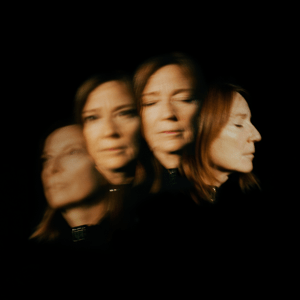Beth Gibbons’ Lives Outgrown feels like the kind of album that only comes after years of living—really living. Over ten tracks, Gibbons reflects on motherhood, anxiety, and mortality with a rawness that’s hard to shake. Written during a decade marked by personal loss and many global uncertainties, the album carries some weight. “I realized what life was like with no hope,” Gibbons has said about the album, and you can feel her truth here.
The production, handled by James Ford and Lee Harris of Talk Talk fame, strikes a delicate balance between sparse and full. Acoustic guitars, strings, and piano create a space that feels almost fragile, leaving plenty of space for Gibbons’ voice to cut through. And her voice—weathered, searching, and achingly human—hits hard. Songs like “Burden of Life” and “Rewind” lean into a sort of chamber post-rock aesthetic, their understated string arrangements only making them hit harder. “Floating on a Moment” is one of those tracks you can’t help but play over and over.
This isn’t an album that offers easy comfort. On Lives Outgrown, Gibbons trades the otherworldly mystique of her earlier work for something more grounded her in the world of maya—grief, aging, and love, worn down by time. But in that vulnerability, the album finds something close to transcendence. It doesn’t look away from the hard stuff. Instead, it invites you to sit with it, to feel those endings in all their messiness and weight. And through it all, Gibbons reminds us she doesn’t need the name Portishead to prove who she is. This album says it all.
























